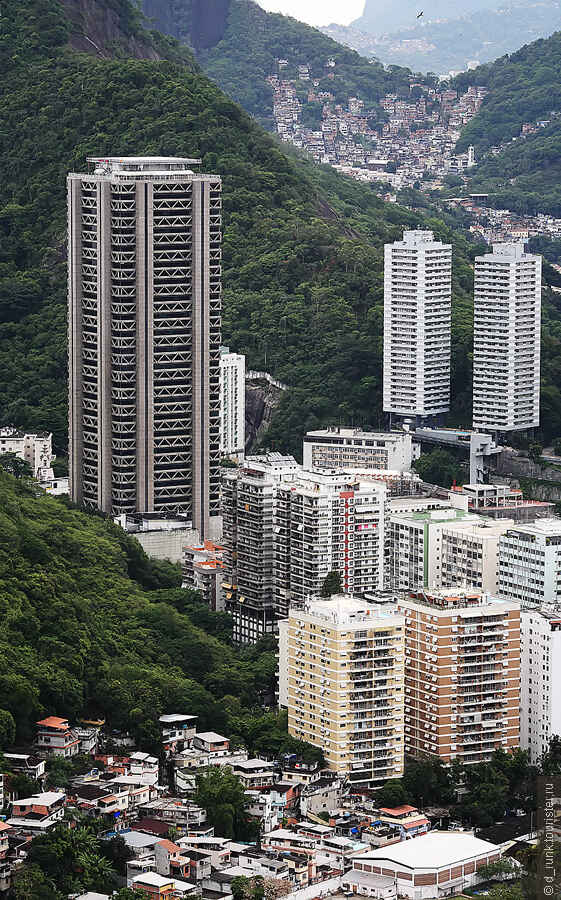
Brazil is a distant South American country, full of contrasts, man-made sights and rare natural diversity, which makes it extremely attractive for active tourism. Occupying an impressive area of 8,515,767 km², Brazil rightfully bears the title of the first largest country in the South American continent. In fact, this country, located in the eastern and central part of the American continent, occupies most of it. Brazil shares borders with almost all South American countries, with the exception of Ecuador and Chile. In terms of demographics, Brazil also occupies a leading position in the Americas, being the largest country in South America in terms of population. According to the indicators for 2019, the population of the country is 210,147,125 people. On a global scale, Brazil ranks fifth among all countries in the world in terms of area and population.
Rio de Janeiro
Having been a Portuguese colony for several centuries, Brazil is today the only Portuguese-speaking country in the Americas.
The capital of the country is the city of Brasilia with a population of 3,039,444 people.
Most of Brazil’s population is Catholic, but about 20 percent of the population is Protestant. Due to the motley ethnic composition of the population, one can also find such religious beliefs as Buddhism, Islam, voodoo and others.
It is believed that the name of the country comes from the Portuguese name for the pau brazil tree with valuable red wood. According to another version, the name of the country comes from Irish mythology and comes from the name of the mythical island of Brazil in the Atlantic Ocean.
Brazil is famous all over the world not only for carnival and football, but also for its unique natural beauties: pristine beaches with dunes in the northeast, the wilds of the Amazon jungle, wetlands in the central part, as well as the richest and most diverse animal world, which is explained by the great variation types of its ecosystems. At the same time, it is one of the most highly urbanized countries with such large metropolitan areas as Sao Paulo, Rio de Janeiro and Salvador de Bahia.
The amazing and distant country of the Southern Hemisphere, which Ostap Bender himself dreamed of with lust, is gradually turning from an unattainable dream into reality, every year more and more Russian tourists turn their eyes towards it.
Brazil’s customs regulations cannot be called too strict, but still, this country has its own nuances. As a standard, the import of firearms, ammunition, drugs and radioactive items is prohibited.
Duty-free importation is allowed for one of the following items of equipment: a radio, player, video camera, iPad, as well as strong alcoholic beverages – up to 2 liters, tobacco products, household items and household items – in the amount of not more than 500 US dollars.
The import and export of local currency is not limited, but amounts over 10 thousand Brazilian reals or the equivalent in foreign currency are subject to declaration.
Foz do Iguacu
It should be borne in mind that Brazil has very strict regulations on the export of animals. An attempt to export any wild animals from the country, without the permission of numerous sanitary and veterinary authorities and quarantine services, is considered a serious crime in Brazil and is strictly punished by law. The same applies to the attempt to take out of the country the skins, shells, feathers, bones and claws of animals.
Russian citizens do not need a visa to Brazil for a stay of up to 90 days. To do this, you must have a passport valid for the duration of the trip, a return ticket or a ticket to a third country, a hotel reservation. All this may not be asked, but it is still recommended to have a printout of the hotel reservation and air ticket.